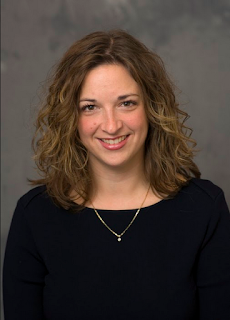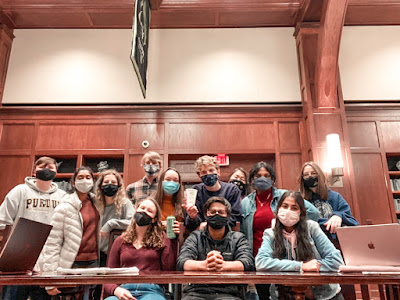ENGINEERING A DIFFERENT PATH: Tamara Moore
Every Purdue engineer has to go through Purdue’s First-Year Engineering program (FYE). While there isn’t much enthusiasm associated with the thought of general engineering classes like Engineering 131, the skills we learn in these general classes are not only essential to our time here at Purdue, but a valuable asset for our future endeavors as well. Regardless of our future careers, the ability to collaborate, analyze and assess problems is crucial.
It’s Professor Tamara Moore’s fifth year as an engineering education professor here at Purdue, where she teaches general engineering classes, including Engineering 131 and 132. After graduating from Purdue, her dream school, with a degree in Engineering Education, she jumped around from being a high school math teacher--teaching everything from algebra to calculus-- to being one of the engineers working on testing the camshafts that go into Dodge Rams at Cummins. After her time in industry, she decided to come back to Purdue for graduate school, and finally earning her undergraduate degree in Engineering. After graduating with her PhD, she became a professor at the University of Minnesota for seven years, then made her way back to the only college she’s ever applied for: Purdue!
Outside of the classroom, Professor Moore is passionate about her research, which focuses on using engineering to teach K-8th graders math and science. After years of high school students asking her the question, “When will I ever use this?”, she realized that engineering was the answer. Engineering is a vast area of study that requires the application of math and science while encompassing the real world. It ties together everything from political to social issues with calculus and biology. Because of her experience as a high school math teacher, Professor Moore has the ability to look at things more holistically, allowing her to utilize many of the same tactics in FYE classes as in kindergarten classes.
Initially, Professor Moore was set on pursuing engineering before switching over to engineering education. Her choice to switch was due to the cutthroat environment she witnessed as a college freshman. However, after time in industry and graduate school, she realized what she had seen was not every engineer’s experience. Engineering has many different forms and applications, and this means that every engineer’s path will be unique. Although she doesn’t regret where her life took her, Professor Moore urges students not to jump to conclusions or assume that every engineer will experience the same environment or ultimately end up in the same role.
Her final piece of advice is a reminder that school isn’t everything. Although it is extremely important, once you’re outside of school, it’s the soft-skills you have, such as being able to work well with others, that are the most important.
Stay tuned for more blogs on different paths through engineering!
- Compiled by WE Link Recruitment Project Committee Blog Group
Cassandra McCormack, Emmalee Severson, Gloria Chen, Shelby Hartzell
Stay Connected with Purdue WIEP!
Twitter: @PurdueWIEP
Instagram: @PurdueWIEP
Email: purdue.welink@gmail.com
Tweets by PurdueWIEP



Comments
Post a Comment